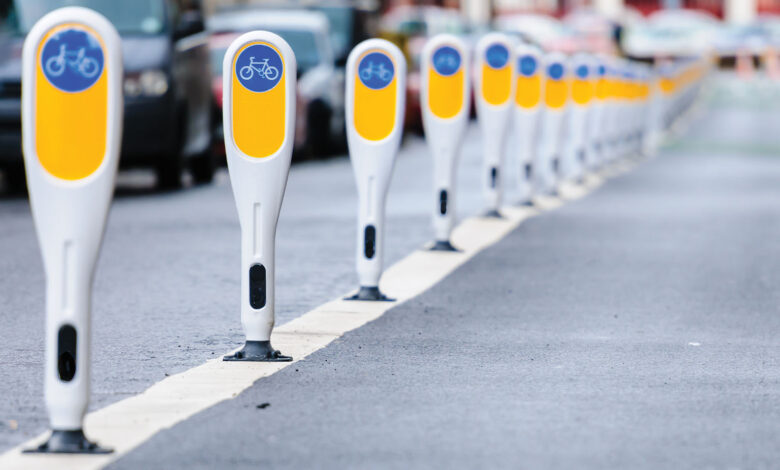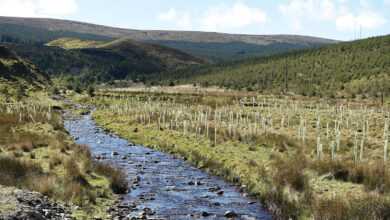Towards an active travel delivery plan

The Department for Infrastructure (DfI) intends to publish the Active Travel Delivery Plan in autumn 2025.
The Climate Change Act (Northern Ireland) 2022 has set a clear mandate for active travel, requiring that at least 10 per cent of the transport budget be allocated to the initiative. However, delivering on this commitment requires a robust policy framework, strategic investment, and a shift in public attitudes towards sustainable transport.
The Department for Infrastructure’s (DfI) Active Travel Delivery Plan, for which submissions to consultation closed on 28 February 2025, aims to provide a structured approach to developing walking and cycling infrastructure over the next decade.
Policy landscape
The Climate Change Act 2022 imposed a statutory duty on the DfI to develop a Transport Sectoral Plan setting out how it intended for the transport sector to contribute to the achievement of greenhouse gas emissions targets set in the Act. It also stipulated that the Transport Sectoral Plan should “set a minimum spend on active travel from the overall transport budget of 10 per cent”.
The Active Travel Delivery Plan, currently in public consultation, seeks to create a well-connected, safe, and accessible network for walking and cycling. It builds on existing strategies, including the Belfast Cycle Network Delivery Plan and the Strategic Plan for Greenways, ensuring a coordinated approach to active travel infrastructure.
Strategic policy priorities
The draft document states that there is a need to prioritise high-impact investment and that funding should be directed towards projects with the greatest potential for modal shift, such as safe cycling routes to schools, improved pedestrian access to town centres, and better integration with public transport.
Part of this is through the development of a comprehensive legal framework. This includes updating road traffic laws to prioritise pedestrian and cyclist safety, introducing stricter emissions targets, and ensuring planning policies require active travel considerations in new developments.
Another key aspect is the embedding of active travel in wider transport planning. Through this, active travel should not be treated in isolation but integrated into broader transport and urban development strategies. This includes aligning with public transport investments, housing policies, and climate adaptation plans.
Lessons from the Republic
Northern Ireland can look to the Republic as an example of how ambitious active travel policies can be implemented successfully. In recent years, the Irish Government has significantly increased investment in cycling and walking infrastructure, setting a precedent for sustainable transport planning.
The Irish Government has introduced progressive legislation to support active travel, including the establishment of dedicated active travel teams within local authorities and mandatory safe passing distance laws for cyclists.
Active travel in the Republic is closely integrated with broader transport and urban development policies. The National Sustainable Mobility Policy, published in 2022, sets out targets for reducing car dependency and increasing active travel. Measures such as car-free zones, pedestrianised city centres, and school streets initiatives have been actively promoted.
The Republic of Ireland has also placed strong emphasis on public engagement, with initiatives such as cycle-to-work schemes, Safe Routes to School programmes, and public bike rental schemes in major cities, with the aim of encouraging uptake and normalising active travel.
Review to come
The Northern Ireland Audit Office (NIAO) is currently undertaking a review on active travel policy in Northern Ireland, due to be published in the summer of 2025.
The car remains the dominant mode of transport in Northern Ireland, with just under 70 per cent of all journeys made in 2021 taken by car and over 80 per cent of distances travelled. In contrast, active travel (walking and cycling) accounted for around 25 per cent of all journeys made, and about 7 per cent of distances travelled. Departmental research also indicates that levels of active travel in Northern Ireland are below those elsewhere in the United Kingdom and in the Republic of Ireland.
The review will provide an overview of the actions taken by the Department to date and will examine how well it is managing the delivery of its requirements for active travel under the Climate Change Act.
With submissions to the Active Travel Delivery Plan having closed, a spokesperson for the DfI told agendaNi that the Department is “now considering the responses to the Active Travel Delivery Plan consultation with a view to publishing in the autumn”.




